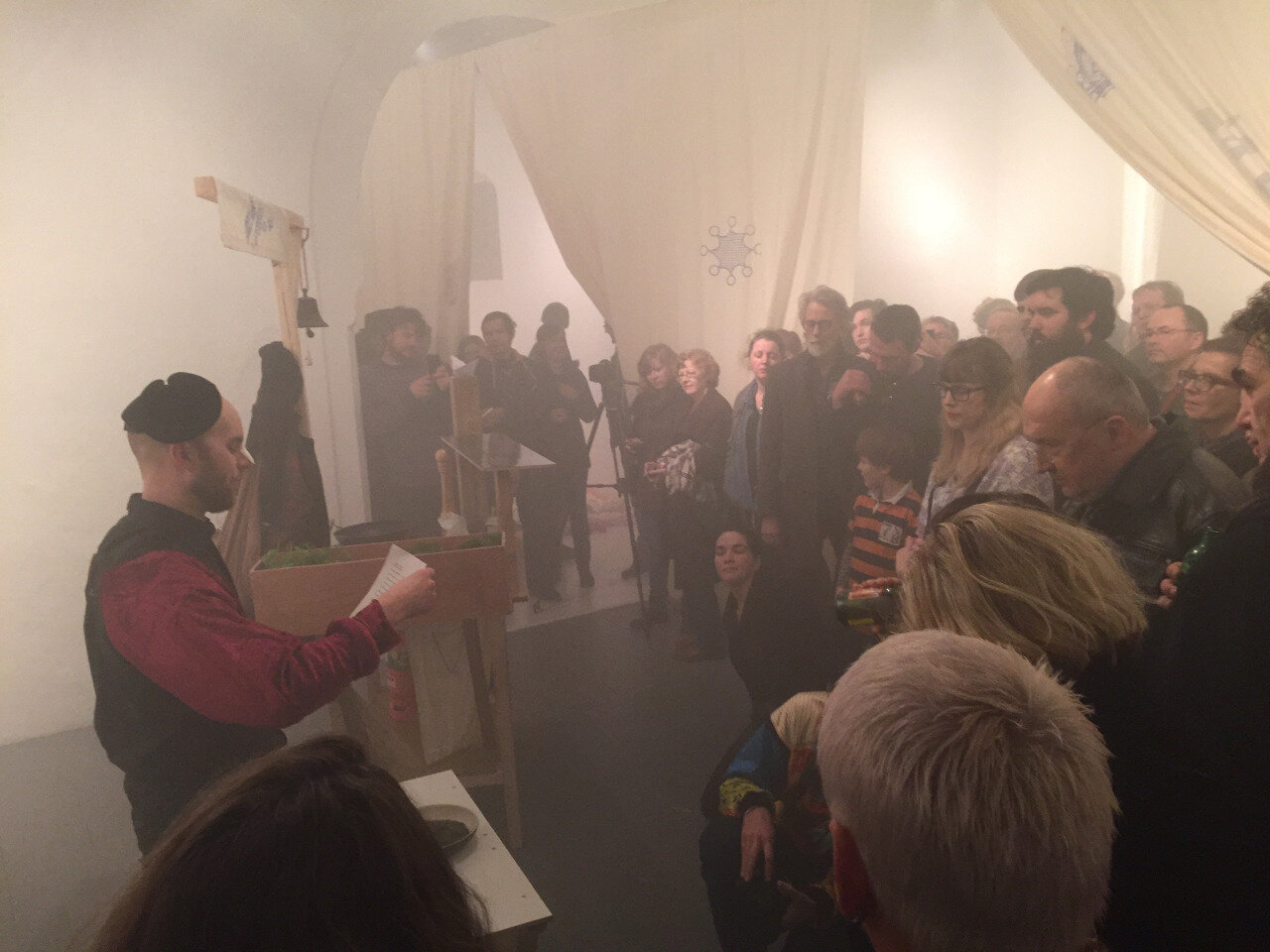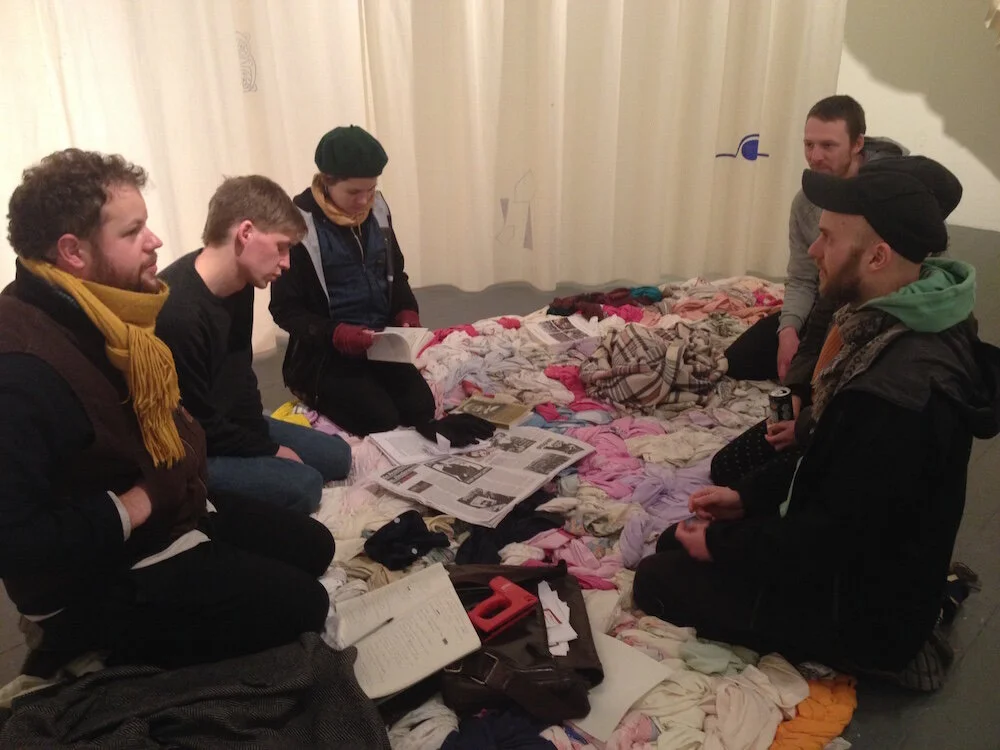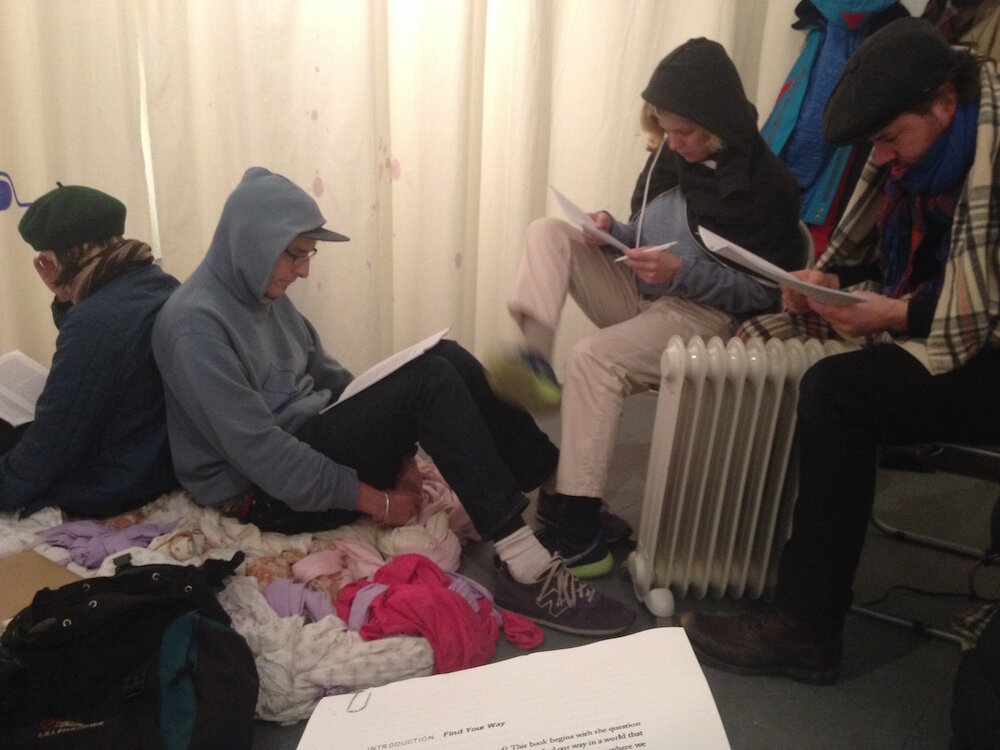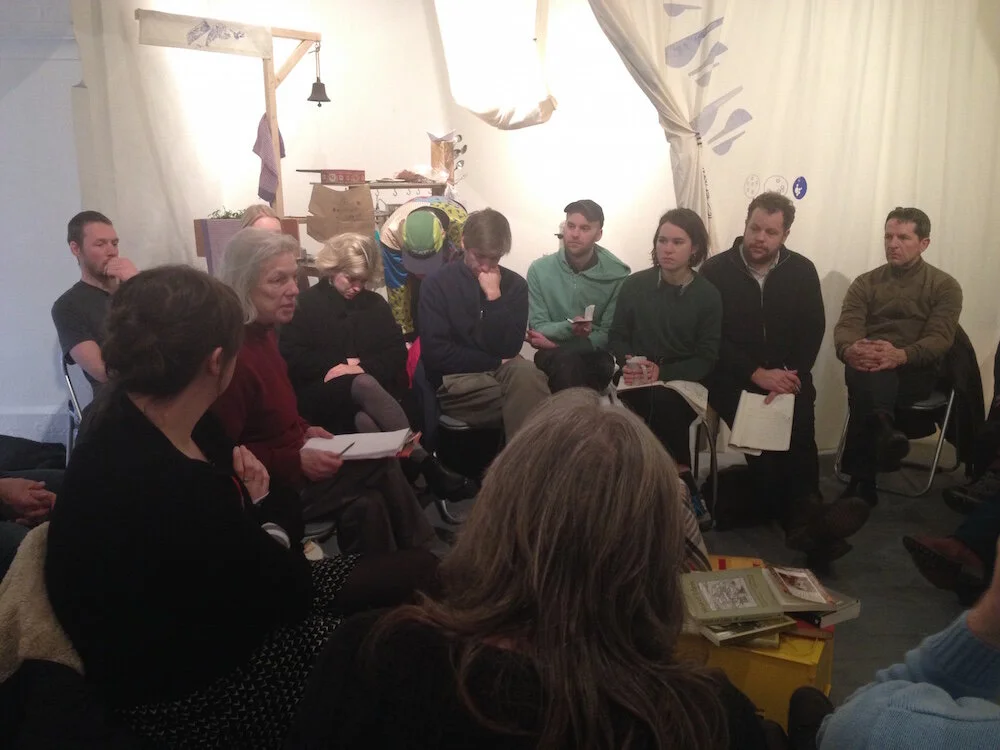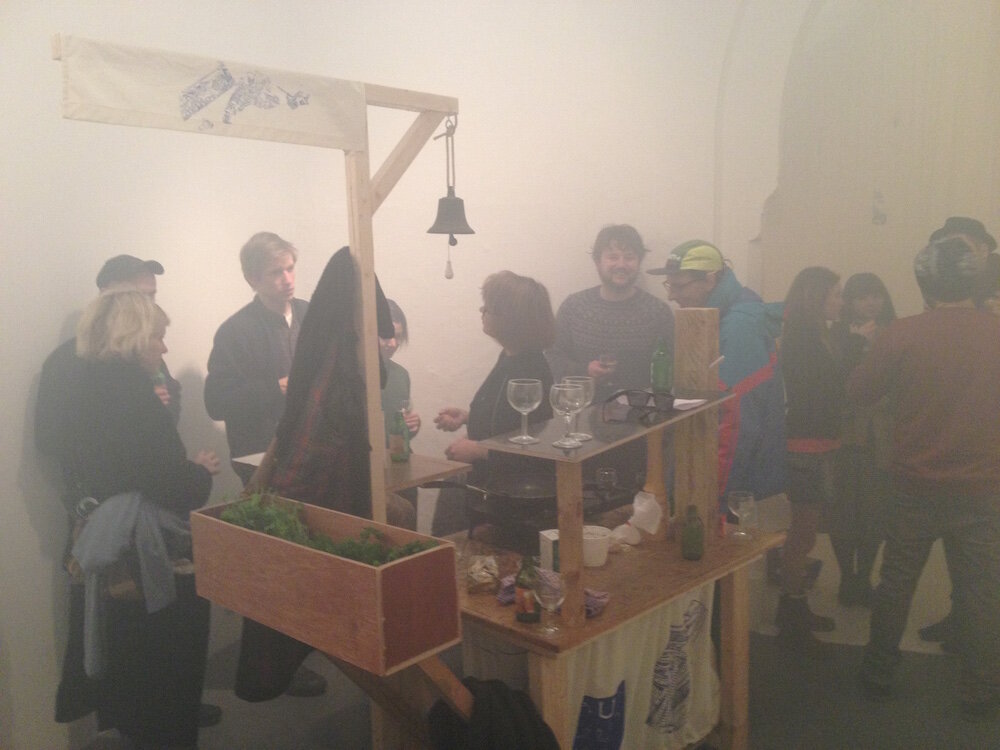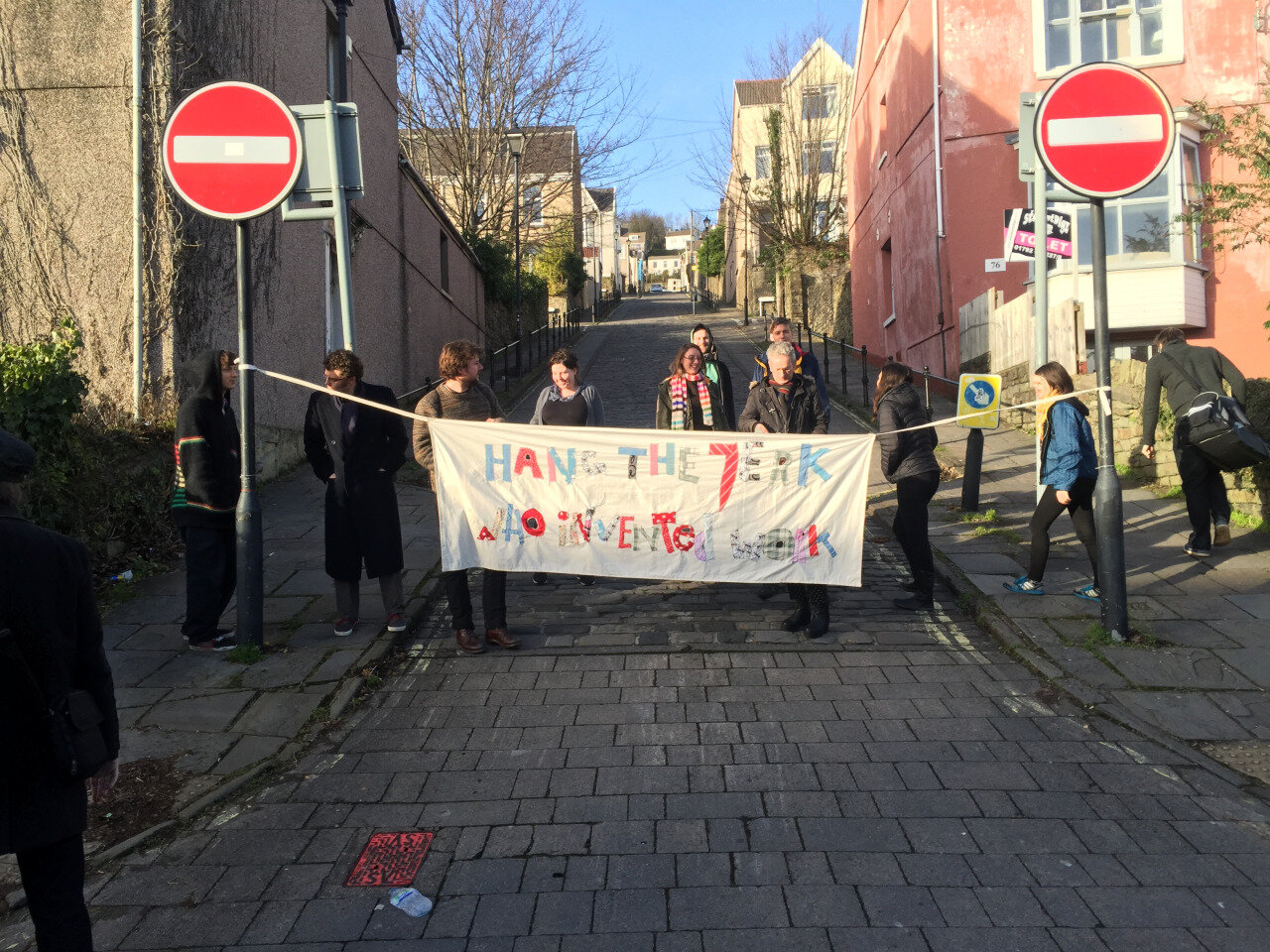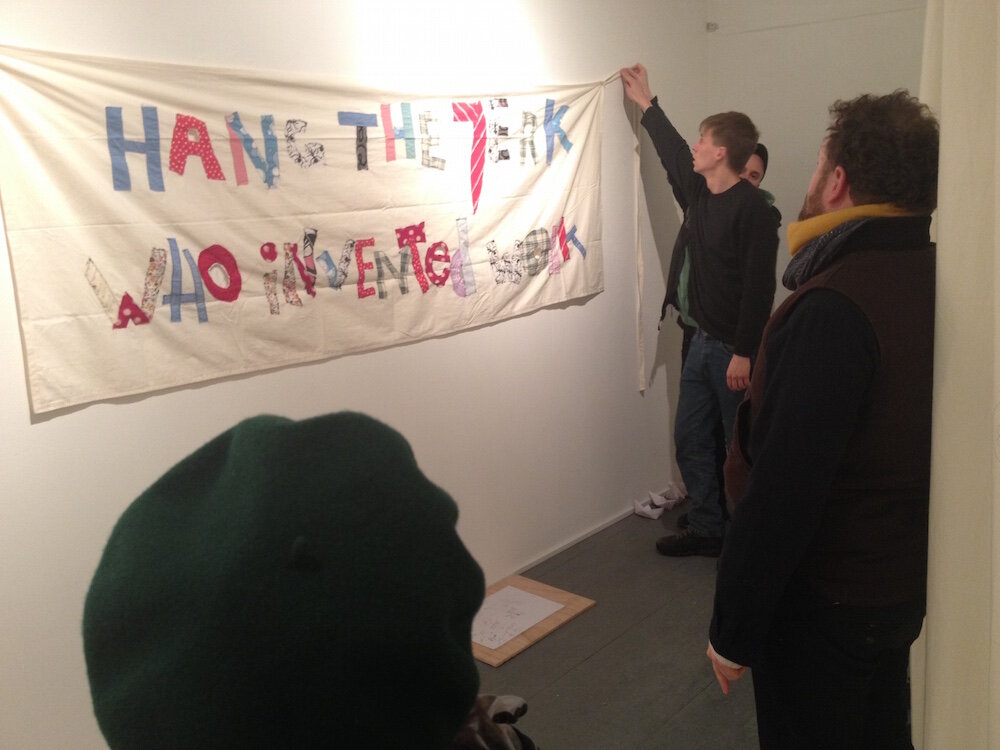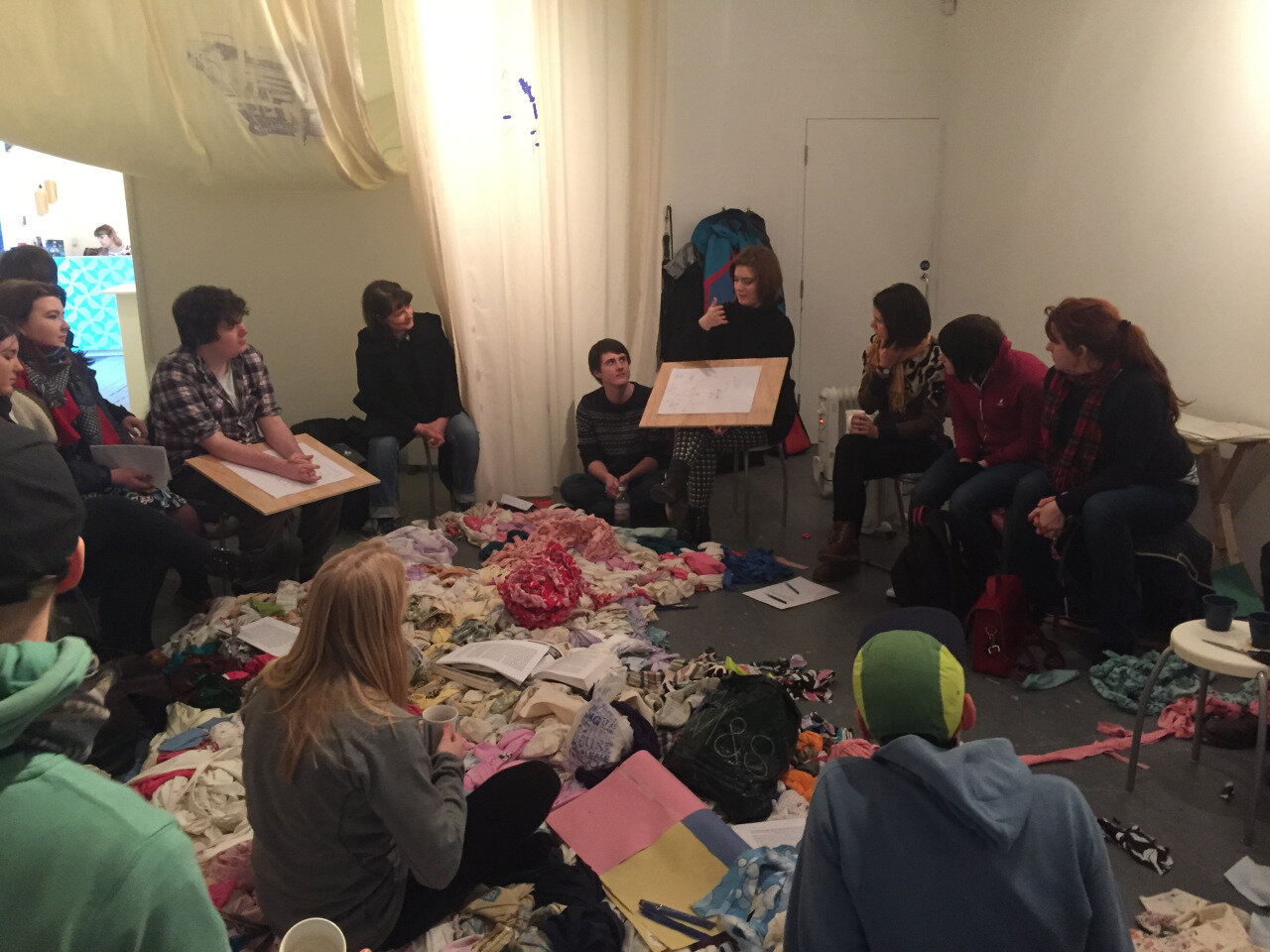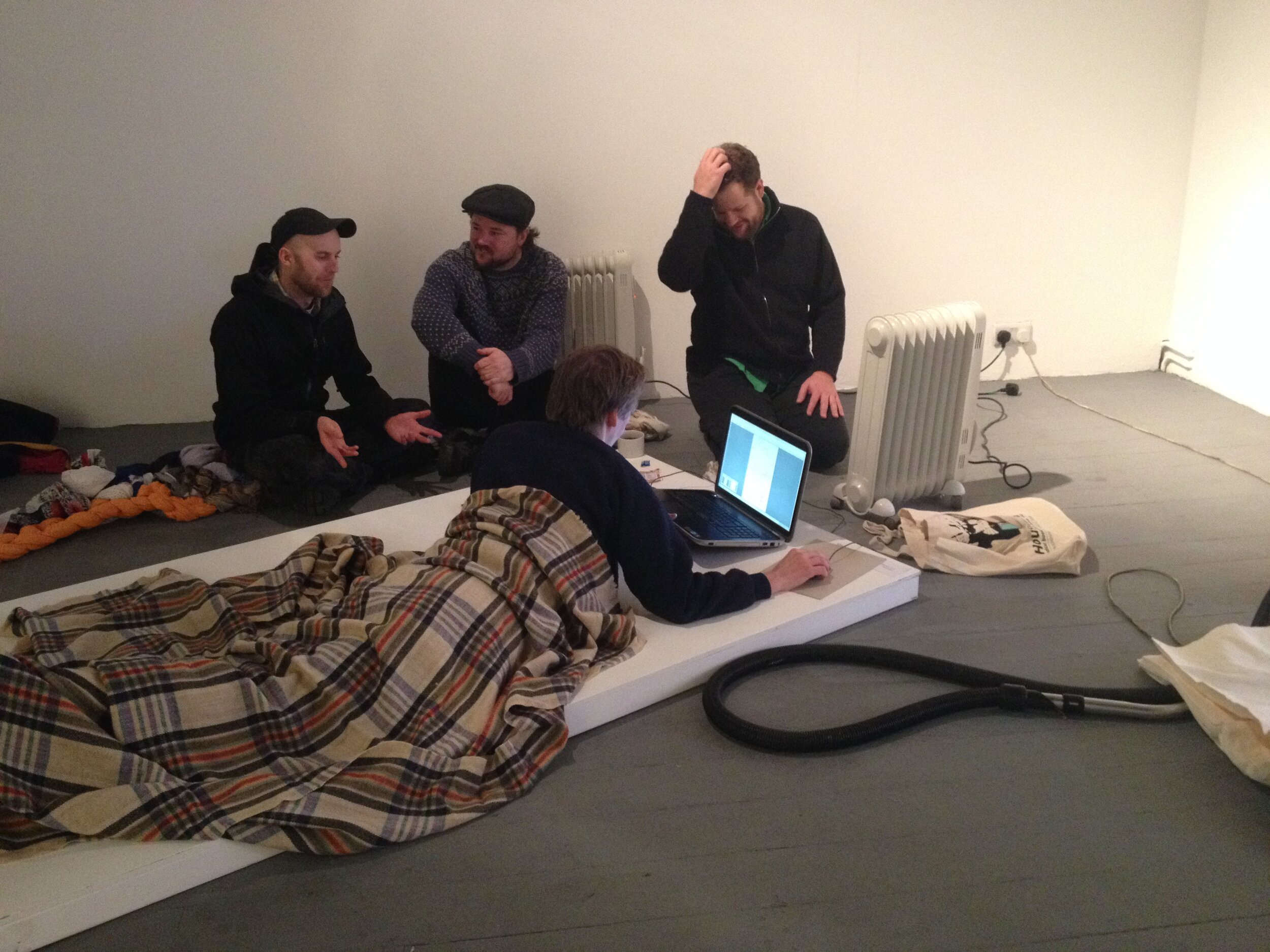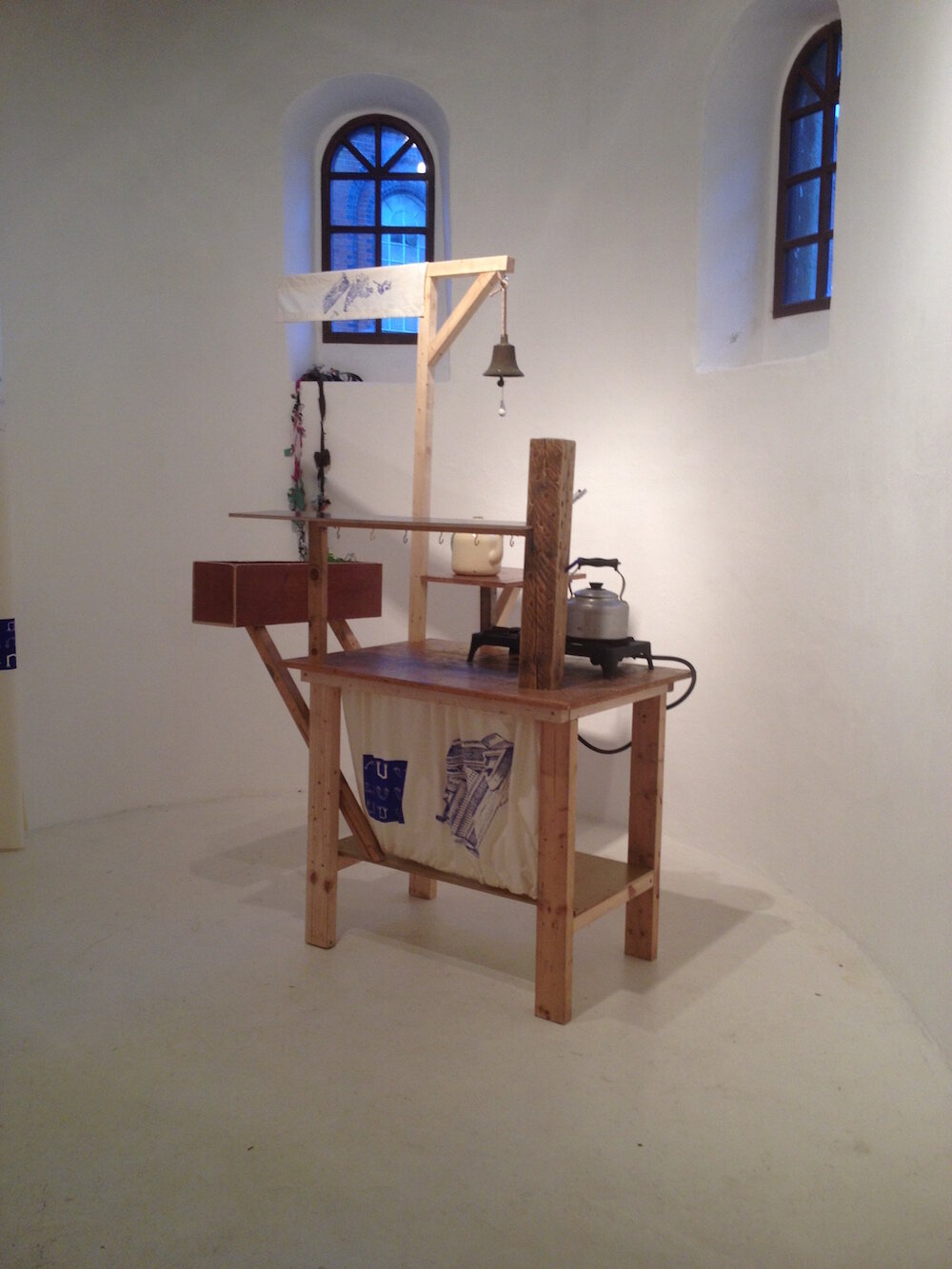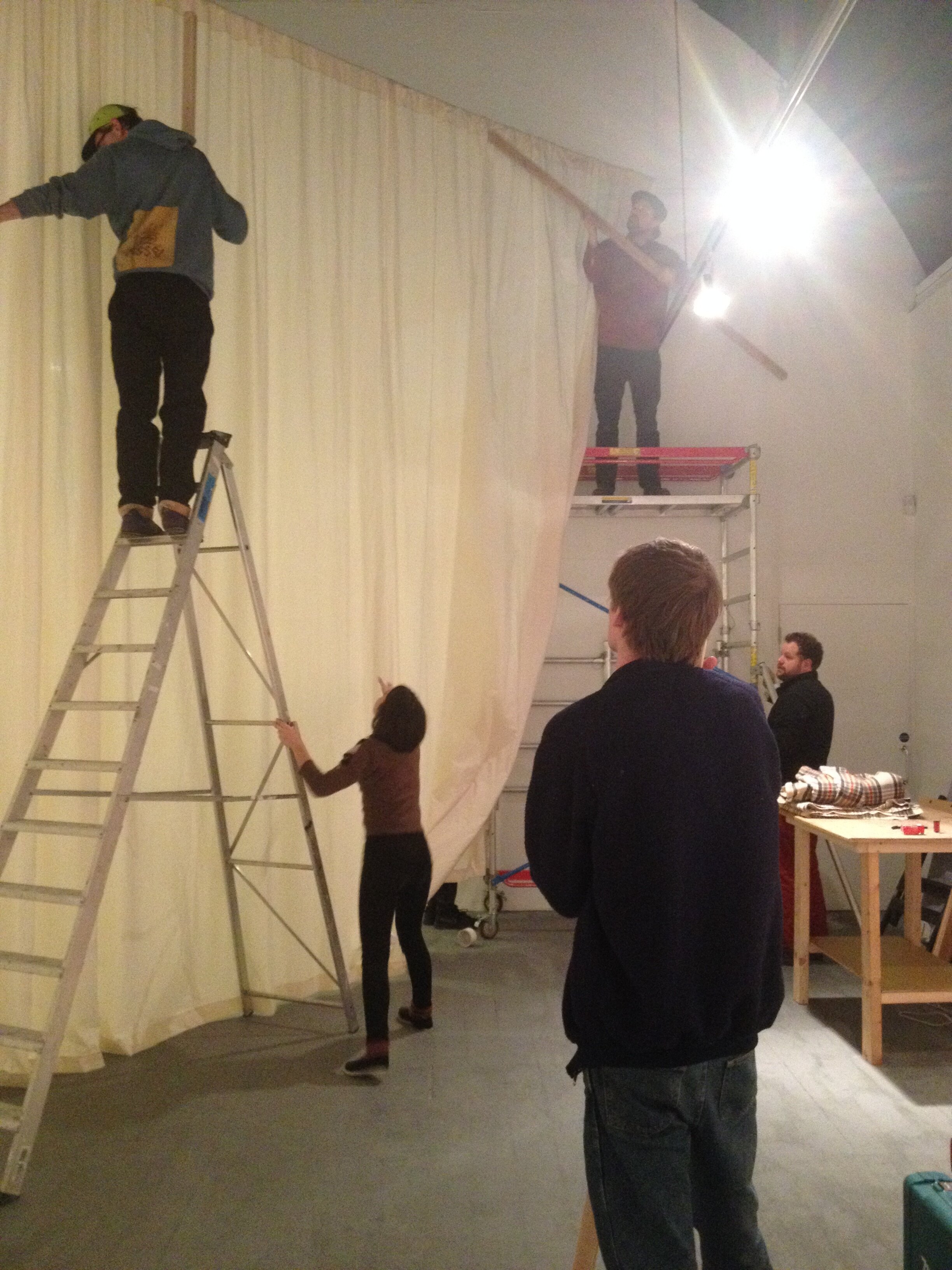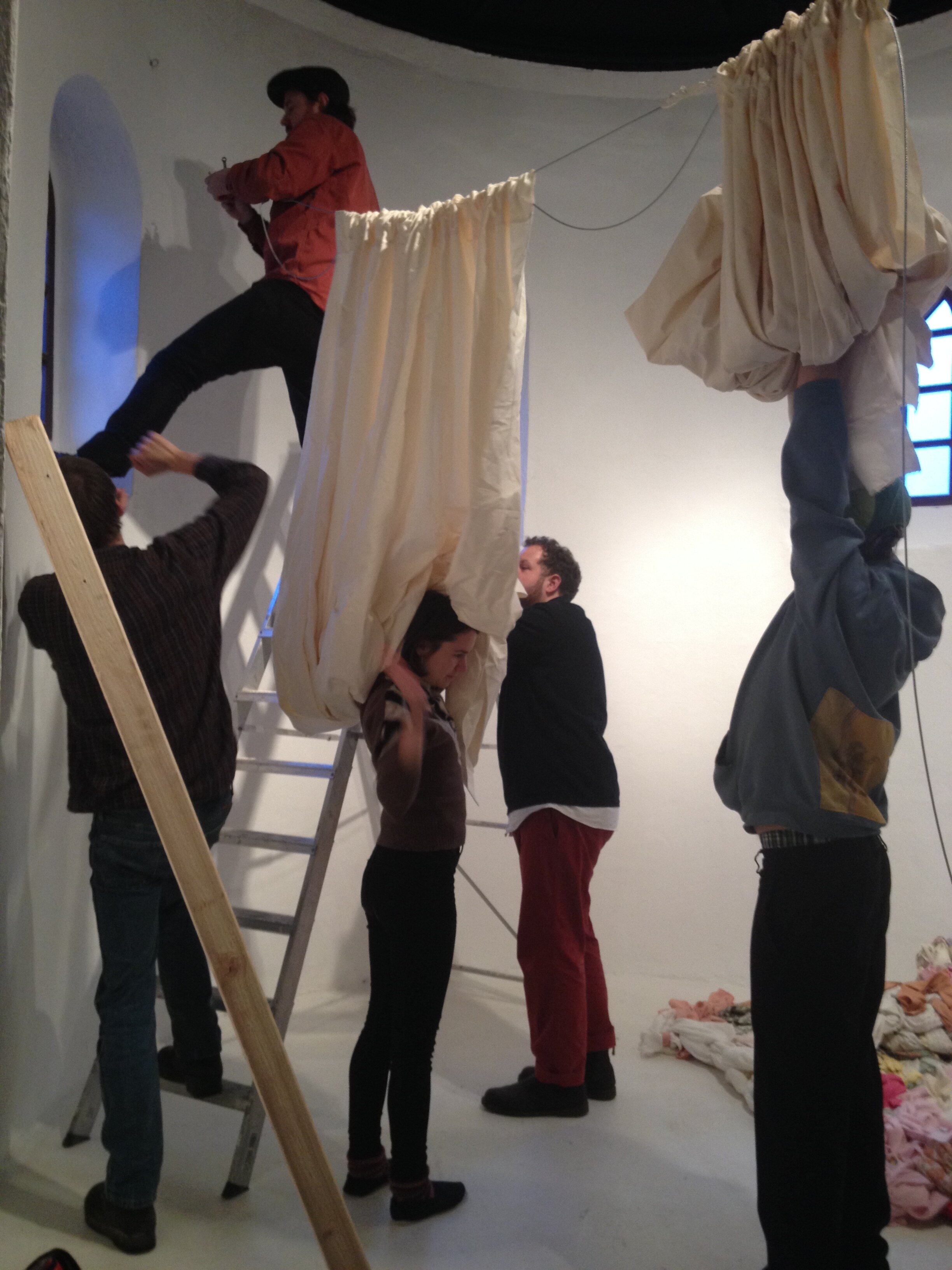Collective Misunderstandings, ATB Collective, Mission Gallery, Swansea 2015
Kristian Byskov | Barnaby Dicker | Margarita del Carmen | Pia Eikaas | Owen Griffiths | Martin Haufe | Benny Henningsen | Vladas Suncovas | Fern Thomas | Anna Ørberg
Collective Misunderstandings was an exploratory, reflective and evolving installation by Copenhagen-based collective, ATB. Invited by Art’s Birthday, Wales to explore notions of Utopia in advance of the 500 year anniversary of Thomas More’s book of the same name, ATB designed an exhibition and programme of events and activities that critically examined the history of utopian thinking. considering such thinking as a method of open process that can be activated through forms of community-based geo-social mobility. It explored soft architecture, symposia and mass sleep overs in the search for utopia..
The two-part symposium featuring guest speakers Anna Davin, Howard and Iain Boal accompanied the Collective Misunderstandings exhibition at Mission Gallery. It examined the history of utopian thinking as a method of open process. The utopian topics chosen by the invited speakers and contributions from ATB provided entry points for discussion around the various ways art, society, industry and nature intersect in daily life.
The events brought together colleagues and friends of the group for a unique and open process of investigation, poetic discourse, historical narrative and a process of collective dreaming and discussion, with key guest speakers as guides. With Thomas More’s text Utopia as a reference the group explored contemporary journeys towards utopia including Ernst Bloch, the Rastafarian process of ‘grounding’, the communes and history of alternative living in California and beyond, and utopian childhoods from a historical and feminist perspective.
ATB is a multidisciplinary collective with members from Germany, Denmark, Norway, Lithuania, Chile and Wales. They share common interests in collectivity, urban space, performance, the politics of art and its emancipatory potential
Supported by Arts Council Wales, the Danish Arts Foundation and the Ministry Of Culture Of The Republic Of Lithuania.
